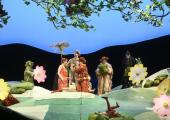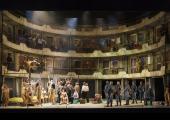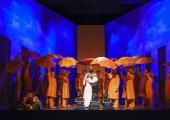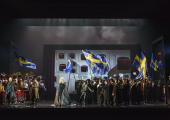The Barber of Seville, Welsh National Opera review - back to work in an old banger
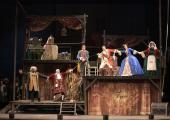
Some excellent singing struggling with a weary production and an unhelpful translation
Welcome back, WNO! Yes, emphatically, and with a loud hurrah, which is precisely what the company received, and rightly received, from the somewhat arbitrarily scattered first night Millennium Centre audience for their opening revival of The Barber of Seville.


